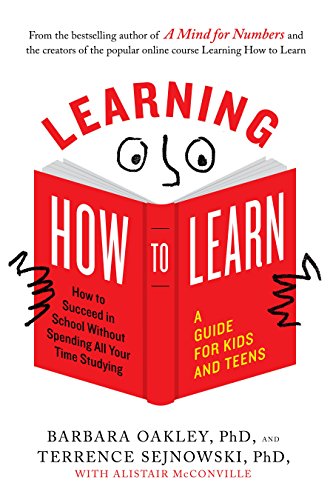
1
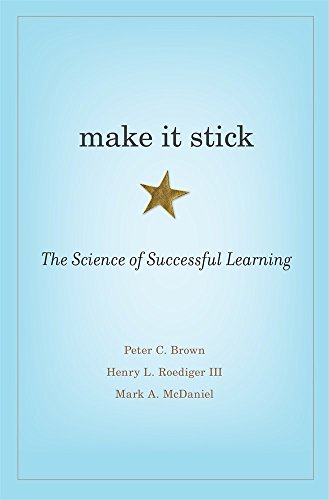
2
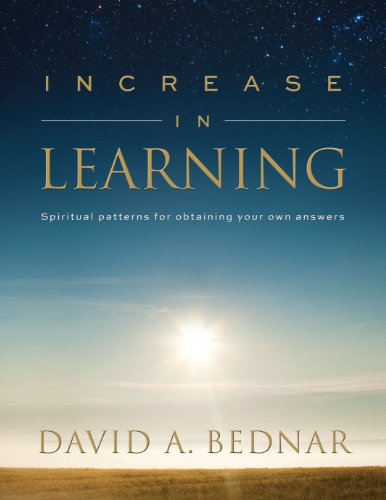
3
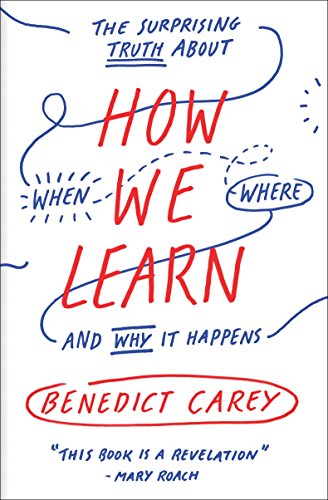
4
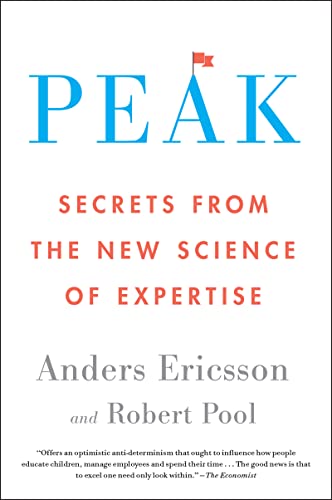
5
Here are 10 benefits of reading that illustrate the importance of reading books. When you read every day you: Gain valuable knowledge Exercise your brain Improve your focus Improve your memory Enjoy entertainment Improve your ability to empathize Improve your communication skills Reduce stress Improve your mental health Live longer
1
This popular learning book has enabled over two million learners from around the world to master subjects that they once struggled with. Although the book is targeted at kids and teens, it contains effective strategies that are applicable to students (aren't we all?) of all ages. The book explains: Why sometimes letting your mind wander is an important part of the learning process How to avoid "rut think" in order to think outside the box Why having a poor memory can be a good thing The value of metaphors in developing understanding A simple, yet powerful, way to stop procrastinating After you discover how the brain works, you'll be taught how exactly to unlock its power.
2
Make it Stick is a lively and engaging book that walks you through the science of learning. Weaving together stories from an array of learners - including surgeons, pilots, gardeners, and university students - the authors create a vivid picture of what happens when we learn something successfully. In addition, they draw from recent discoveries in cognitive psychology and other disciplines to offer concrete techniques for becoming more productive learners. Speaking most urgently to students, teachers, trainers, and athletes, this book will appeal to all those interested in the challenge of lifelong learning and personal development.
3
This new interactive book will help you acquire one of the most important skills you ll ever possess: the power to learn. With its unique blend of print, media, and online resources, it provides patterns for spiritual learning that will lead you to understand and act on truths. Learn how to get the answers you need for yourself! With extra-wide margins for recording thoughts and questions, the book invites the reader at every turn to rejoice in the excitement of learning. Plus, it includes a DVD with even more learning resources, including a Q&A session with young adults.
4
How We Learn is a fascinating guide that explores what we know about learning and memory today, and how we can use it to make our lives better. In the book, award-winning science reporter Benedict Carey sifts through decades of education research and landmark studies to uncover the truth about how our brains absorb and retain information. He addresses questions such as: Is a dedicated desk in a quiet room really the best way to study? Can altering your routine improve your recall? Are there times when distraction is good? Is repetition necessary? Additionally, Carey reveals why teachers should give final exams on the first day of class, why it’s wise to interleave subjects when learning any new skill, and when it’s smarter to stay up late studying than attempt a cram session early in the morning.
5
Anders Ericsson has made a career studying chess champions, violin virtuosos, star athletes, and memory mavens. In Peak, he distills three decades of interesting research to dispel the common myth that most "prodigies" or experts achieve what they do by innate talent. In fact, he brings to light their intense and often grueling routines of practice...deliberate practice. Whether you want to stand out at work, improve your athletic or musical abilities, or help your child achieve academic goals, Ericsson provides a proven blueprint for outstanding performance.

1
This popular learning book has enabled over two million learners from around the world to master subjects that they once struggled with. Although the book is targeted at kids and teens, it contains effective strategies that are applicable to students (aren't we all?) of all ages. The book explains: Why sometimes letting your mind wander is an important part of the learning process How to avoid "rut think" in order to think outside the box Why having a poor memory can be a good thing The value of metaphors in developing understanding A simple, yet powerful, way to stop procrastinating After you discover how the brain works, you'll be taught how exactly to unlock its power.

2
Make it Stick is a lively and engaging book that walks you through the science of learning. Weaving together stories from an array of learners - including surgeons, pilots, gardeners, and university students - the authors create a vivid picture of what happens when we learn something successfully. In addition, they draw from recent discoveries in cognitive psychology and other disciplines to offer concrete techniques for becoming more productive learners. Speaking most urgently to students, teachers, trainers, and athletes, this book will appeal to all those interested in the challenge of lifelong learning and personal development.

3
This new interactive book will help you acquire one of the most important skills you ll ever possess: the power to learn. With its unique blend of print, media, and online resources, it provides patterns for spiritual learning that will lead you to understand and act on truths. Learn how to get the answers you need for yourself! With extra-wide margins for recording thoughts and questions, the book invites the reader at every turn to rejoice in the excitement of learning. Plus, it includes a DVD with even more learning resources, including a Q&A session with young adults.

4
How We Learn is a fascinating guide that explores what we know about learning and memory today, and how we can use it to make our lives better. In the book, award-winning science reporter Benedict Carey sifts through decades of education research and landmark studies to uncover the truth about how our brains absorb and retain information. He addresses questions such as: Is a dedicated desk in a quiet room really the best way to study? Can altering your routine improve your recall? Are there times when distraction is good? Is repetition necessary? Additionally, Carey reveals why teachers should give final exams on the first day of class, why it’s wise to interleave subjects when learning any new skill, and when it’s smarter to stay up late studying than attempt a cram session early in the morning.

5
Anders Ericsson has made a career studying chess champions, violin virtuosos, star athletes, and memory mavens. In Peak, he distills three decades of interesting research to dispel the common myth that most "prodigies" or experts achieve what they do by innate talent. In fact, he brings to light their intense and often grueling routines of practice...deliberate practice. Whether you want to stand out at work, improve your athletic or musical abilities, or help your child achieve academic goals, Ericsson provides a proven blueprint for outstanding performance.
© Five Books 2026